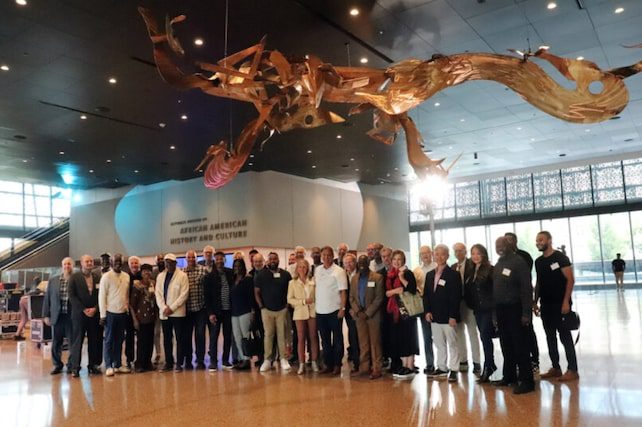(RNS) — Three years after the death of George Floyd in Minneapolis brought crowds into the streets for a summer of protests, Christian groups are quietly launching initiatives that address the still-fraught racial divisions among their members and in the wider society.
In New Orleans next week, leaders of the Southern Baptist Convention, which has been roiled by unrest over critical race theory and other racial issues in recent years, will hold a forum on racial reconciliation. Beginning Friday (June 9), meanwhile, representatives of mainline and historic Black Protestant denominations will discuss their plans for “eradicating racism,” in the words of a session planned for a three-day meeting in Philadelphia.
“We need to have honest conversations with people who don’t look like us to find out why we have these differences,” said Fred Luter, a former president of the Southern Baptist Convention and the first African American to lead the nation’s largest Protestant group. “We need to talk about it, we need to discuss it and we should be able to discuss it in a Christian-like manner and hopefully come up with simple steps of what we can do to bring about unity among the races in the SBC.”
RELATED: Let’s Talk, a new racial unity initiative, takes evangelical leaders on tour of Black history
On Monday, as delegates to the SBC’s annual meeting gather, Luter said he expects about 300 people at the racial reconciliation event organized by the Unify Project, a campaign Luter founded with another former SBC president, Ed Litton, with the advice of Dallas megachurch pastor Tony Evans. The Unify Project aims to bring pastors and churches together for meals and to help them speak out and jointly provide community service.
In 2018, in Memphis, Tennessee, the SBC’s Ethics and Religious Liberty Commission, then headed by Russell Moore, co-sponsored an event on racism timed to the 50th anniversary of the assassination of the Rev. Martin Luther King Jr., in an attempt to advance the racial history of a denomination that supported the Confederacy during the Civil War. But since then race has again become a sore point for the SBC.
Luter said he hopes the gathering, which is co-hosted by the ERLC, will turn the SBC to a new direction. “All we can do is hope,” he said. “That’s my hope, personally.”
In Philadelphia, the 10 denominations that comprise the 21-year-old Churches Uniting in Christ have convened to address how its member groups can work on “a shared mission to combat racism,” one part of an eight-point agenda that also includes commitments to promoting unity, celebrating the Eucharist together and continuing theological dialogue.
“Our hope is to set some goals for the next three years that will focus on how we can continue to work on racial equity together and how we can continue to dialogue with each other,” said the Rev. Jean Hawxhurst, a United Methodist ecumenist and vice president of CUIC.
Bishop Jeffrey Leath of the African Methodist Episcopal Church, a member of the CUIC Coordinating Council, said the gathering will consider how their work fits with that of other ecumenical groups working on race issues and how their representatives can address a range of forms of biases.
“Black and brown communities should be committed to working on issues of anti-bias as we work along with our white brothers and sisters on anti-racism,” said Leath, who also is the ecumenical officer of the AME Church. “The African American and various Black and brown communities are plagued with classism, colorism and xenophobia in ways that are just as egregious as racism.”

